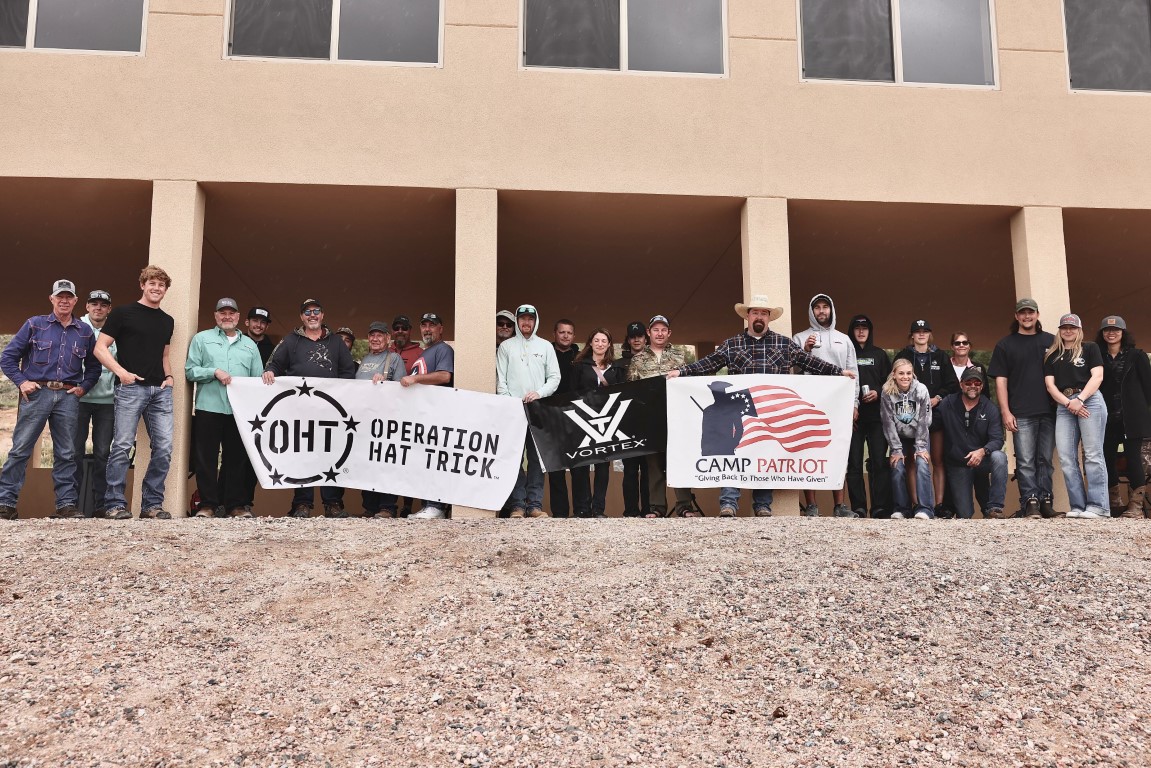
Train With the Pros: Expert-Led Firearms Training Programs for Safe and Effective Gun Handling
The increasing complexity of firearm technology combined with the critical need for safety and proficiency has made expert-led firearms training programs more important than ever. Prospective gun owners, concealed carry applicants, and tactical professionals must navigate a landscape of varying skill levels, legal regulations, and ethical considerations. This article examines expert-led training programs, their offerings, and the clear advantages they hold over self-taught or low-level courses. It outlines available courses for different skill levels, essential safety protocols, customized training methods, and the critical legal and ethical topics these programs cover. Through detailed insights and real-world examples, readers are guided toward enrolling in programs that foster both competence and responsible gun ownership.
Transitioning from impromptu training methods to professionally guided courses, this analysis provides a comprehensive look at expert-led firearms training programs.
What Are Expert-Led Firearms Training Programs?
Expert-led firearms training programs are structured courses led by certified instructors with extensive experience in firearm handling and tactical operations. These programs ensure that participants not only learn practical techniques but also gain a thorough understanding of safe handling practices, legal compliance, and ethical responsibilities. Training is delivered through classroom modules combined with hands-on practice sessions, enhancing precision and reflexes under real-world conditions. Advanced simulated scenarios and target drills mirror high-pressure environments to build a strong foundation of technical skills and situational awareness.
Who Are the Certified Instructors Leading These Programs?
Certified instructors are often former law enforcement officers, military veterans, or seasoned firearms trainers with years of field experience. Their rigorous certification and continuous training ensure they remain up to date with the latest legal standards and tactical techniques. These professionals deliver clear, step-by-step demonstrations and offer personalized feedback to guarantee that each student’s technique is both safe and effective. Their credentials and real-world experience instill trust and reinforce gun safety and education, including the importance of a background check.
How Do Expert-Led Programs Enhance Firearm Safety and Proficiency?
By focusing on correct handling, maintenance, and the legal facets of gun ownership, expert-led programs significantly enhance firearm safety and proficiency. Scenario-based exercises simulate real-life stress and decision-making, helping to build muscle memory and cognitive responses that reduce the risk of accidental discharges. Combined with rigorous skill assessments and continuous feedback, these programs empower participants to operate safely and effectively under pressure while adhering to legal requirements.
Which Firearms Training Courses Are Available for Different Skill Levels?
Firearms training courses cater to everyone from first-time gun owners to seasoned professionals. Professional training programs are customized to each individual’s experience level, covering everything from basic handling and safety to advanced tactical operations. Courses are arranged in progressive modules where each level builds on the previous one, ensuring mastery over the firearm. Whether the goal is personal defense or comprehensive tactical training, these courses maximize learning through both theoretical instruction and practical exercises.
What Does Beginner Firearms Training Include?
Beginner programs introduce the essential elements of gun safety and operation. They start with an overview of firearm components, safe handling practices, and proper storage protocols. Trainees learn the basic mechanics of different firearm types, along with instruction on grip, stance, sight alignment, trigger control, and recoil management. Emphasis is also placed on understanding the legal ramifications of firearm use, with clear guidance on when and where a firearm may be used. Practical drills, including static target shooting in controlled conditions, help novices establish a solid foundation before advancing into shooting sports.
How Do Advanced Tactical Shooting Courses Improve Skills?
Advanced tactical shooting courses refine techniques essential in high-stress environments. These courses introduce complex drills, such as rapid target transitions, dynamic movement shooting, low light engagements, and simulated combat intersections. Designed to improve shooting efficiency under physical and mental stress, these courses often incorporate team-based exercises that cultivate strong communication and effective situational decision-making. The focus on speed, accuracy, and adaptability enables trainees to respond quickly and decisively in real-world scenarios.
What Are the Features of Concealed Carry Training Programs?
Concealed carry training programs empower individuals to safely and responsibly carry a concealed firearm. These courses cover technical aspects such as holster selection, ensuring clothing compatibility, and rapid deployment techniques. They also emphasize situational awareness, conflict de-escalation, and the legal issues surrounding concealed carry. Scenario-based training simulates encounters in public spaces so that trainees are well-prepared to assess threats and execute defensive measures while minimizing personal and public risk. Deadly force
How Is Safety Prioritized in Professional Firearms Training?
Safety is the cornerstone of professional firearms training. Programs emphasize the development of rigorous safety habits through both theory and practice. Safety measures are integrated into every phase of handling a weapon—from pre-use checks to post-use protocols. Instructors continuously monitor techniques to catch unsafe practices early, ensuring that safety becomes ingrained in every trainee. Systematic safety evaluations and strict adherence to protocols create a secure environment for both learning and practice.
What Safety Measures Are Taught in Training Sessions?
Training sessions cover a wide range of safety measures vital for responsible firearm usage. Key protocols include keeping the finger off the trigger until ready to shoot, maintaining constant muzzle awareness, and ensuring proper chamber clearance. Instructors stress treating every firearm as if it is loaded and mandate the use of protective gear such as ear and eye protection during live-fire exercises. Emergency response protocols—like stopping fire immediately and evacuating in case of an accidental discharge—are also rigorously practiced, ensuring readiness for unexpected situations.
Why Is Responsible Gun Ownership Emphasized?
Responsible gun ownership is stressed to ensure that firearms are handled with the utmost respect and care. Training programs instill a sense of moral and legal responsibility by discussing scenarios where improper handling can lead to severe consequences. This focus on responsibility helps prevent accidents and fosters a culture of continuous learning and lawful firearm use. Responsible ownership is not solely about technical skill; it also involves understanding when it is appropriate to use a firearm and the ethical implications of its use. Such an approach contributes to safer communities and a more secure society.
How Are Firearms Training Programs Customized to Individual Needs?
Firearms training programs are designed to be flexible and adapt to the unique needs of each participant. Recognizing that individuals possess varying levels of experience and pursue different objectives—from self-defense to competitive shooting—training centers offer personalized courses. Detailed assessments, customized training plans, and one-on-one coaching sessions ensure focused instruction tailored to each trainee’s strengths and weaknesses.
What Factors Determine Customized Training Plans?
Customized training plans are developed based on several factors: prior experience, physical fitness, intended firearm usage, and learning style. Training typically begins with a skills assessment to identify technique gaps. Personal goals, whether securing a concealed carry permit or preparing for tactical competitions, shape the training agenda. Instructors use this data to balance theoretical knowledge with practical exercises, ensuring measurable progress and enhanced confidence in handling firearms responsibly.
How Does Hands-on Training Support Skill Development?
Hands-on training is critical as it bridges theory and practice. It enables real-time corrections under instructor supervision and reinforces proper techniques through muscle memory and cognitive feedback. Practical drills, live-fire exercises, and simulated real-world scenarios create a controlled yet dynamic setting for refining skills. This direct interaction between instruction and execution solidifies best practices and builds confidence, precision, and overall proficiency in firearm handling, including the use of force.
What Legal and Ethical Topics Are Covered in Firearms Training?
Legal and ethical education is a fundamental component of firearms training. These topics ensure that trainees understand how to operate a firearm while being fully aware of its legal limitations and ethical responsibilities. The curriculum offers a comprehensive overview of local, state, and federal firearm laws, alongside situational ethics dictating when and how a firearm may be used. Integrating these subjects deepens awareness of the serious responsibilities associated with owning and handling a weapon.
How Do Training Programs Explain Firearm Laws and Regulations?
Training programs cover firearm laws and regulations with detailed, context-rich modules. These modules review key legislation such as the Gun Control Act and various concealed carry laws, as well as specific state regulations. Instructors use hypothetical scenarios to illustrate how these laws apply in everyday situations, clarifying both the letter and spirit of the law. Landmark legal cases are sometimes reviewed to help trainees understand the consequences of non-compliance, thus empowering them to operate within legal boundaries. The national rifle association.
What Ethical Responsibilities Are Included in the Curriculum?
The curriculum emphasizes ethical responsibilities by focusing on respect, stewardship, and accountability in firearm ownership. Topics include the duty to prevent harm, the importance of de-escalation in conflicts, and the serious implications of using deadly force. Real-world examples and ethically challenging scenarios encourage trainees to consider the broader impact of their actions. This ethical foundation ensures that participants internalize a sense of moral responsibility, extending their technical training into a commitment to community safety and trust.
Why Choose Professional Firearms Training Over Self-Study?
Professional firearms training offers significant advantages over self-study by merging structured learning with expert guidance and practical experience. With access to certified instructors and modern facilities, trainees receive comprehensive instruction that is adapted to their individual needs. The collaborative environment and immediate feedback help reinforce gun safety protocols and skills effectively. Additionally, the variety of scenario-based exercises available in professional settings is difficult to replicate during self-study, which not only builds competence but also instills greater confidence in handling firearms under pressure.
What Are the Benefits of Learning From Experienced Instructors?
Learning from experienced instructors provides personalized feedback and emphasizes proven tactical methodologies. Their real-life operational insights effectively bridge the gap between academic knowledge and hands-on application. Direct mentorship from such professionals promotes discipline, minimizes the development of poor habits, and accelerates proficiency with complex techniques. These benefits are evident in improved shot accuracy and quicker decision-making during high-pressure situations, particularly in the context of gun safety and marksman.
How Do Testimonials Reflect Training Effectiveness?
Testimonials from trainees offer compelling evidence of a program’s effectiveness. Many participants report noticeable improvements in shooting accuracy, situational awareness, and overall confidence after training. Specific feedback, such as enhanced target accuracy or reduced reaction times, underscores the real-world benefits of expert-led instruction. Positive testimonials from law enforcement and competitive shooters further validate the credibility and success of these programs, particularly in shooting sports.
How Can You Enroll in Expert-Led Firearms Training Programs?
Enrollment in expert-led firearms training programs is designed to be simple and accessible. The process typically involves submitting an application, completing a preliminary skills assessment, and possibly undergoing an interview to determine training objectives. Once admitted, trainees can select from a variety of courses tailored to their skill level—from beginner programs to specialized tactical and concealed carry courses. Enrollment also often includes access to exclusive training modules, partner discounts, and additional resources for ongoing learning, ensuring that each participant receives a fully customized training experience. Additionally, part of the training process may include an emphasis on the importance of a background check to ensure safety and compliance with regulations.
What Are the Enrollment Requirements and Process?
Enrollment requirements generally include a valid government-issued photo ID, the necessary documentation to prove eligibility (such as background checks and permits), and sometimes a pre-assessment questionnaire to determine the appropriate course level. The process starts with an online application followed by an initial consultation—either virtual or in-person—where experienced staff review a trainee’s background, discuss available courses, and outline required materials and fees. Once these preliminary steps are completed, a customized training plan is assigned based on individual needs and goals, ensuring that every participant is well-prepared for the course.
Are There Special Offers or Packages for New Trainees?
Many training centers offer special introductory packages and seasonal promotions to incentivize enrollment. These may include bundled courses at discounted rates, free access to supplementary online modules, or complimentary gear and accessories. Special offers are often available during specific promotional events, such as national gun safety weeks, helping to reduce the financial burden of professional training while adding extra value to the overall learning experience. Prospective trainees are encouraged to inquire about current promotions when enrolling, including options for concealed carry.
Frequently Asked Questions
Q: What distinguishes expert-led firearms training programs from basic courses? A: Expert-led training programs feature a structured curriculum, certified instructors, and hands-on exercises that cover advanced safety protocols, legal regulations, and tactical operations—going beyond the basics to build both technical skills and a strong ethical foundation, while emphasizing gun safety and use of force.
Q: How long does it typically take to complete a firearms training course? A: The duration varies by program and skill level. Basic courses may last one to two days, while advanced tactical or concealed carry training can extend for several weeks. Customized courses adjust in length based on individual needs.
Q: Can individuals with no prior firearm experience enroll in these courses? A: Yes. Many programs are designed specifically for beginners, providing comprehensive instruction on firearm safety, handling, and basic shooting skills. These courses build confidence and competence gradually.
Q: Are the training programs compliant with current firearm laws and regulations? A: Absolutely. All expert-led programs strictly adhere to current federal, state, and local firearm laws, integrating up-to-date legal information into the curriculum to ensure proper and legal firearm use.
Q: What kind of certification will I receive after completing a course? A: Upon completion, trainees typically receive a certification confirming their proficiency and knowledge in firearm handling and safety—valuable for concealed carry permits, security roles, or advanced tactical training.
Q: How do expert-led programs address real-world scenarios? A: Programs incorporate scenario-based training that simulates real-world environments. Through dynamic drills and high-pressure simulations, trainees learn to make rapid decisions and execute effective techniques under stress.
Q: Are group courses available for team training? A: Yes. Many programs offer group courses designed specifically for teams. These courses emphasize communication, coordination, and tactical strategy, making them ideal for law enforcement agencies, private security firms, and corporate groups.
Final Thoughts
Expert-led firearms training programs provide a comprehensive, safe, and highly effective way to master firearm handling and tactical skills. By combining certified instructor guidance with customized curricula and practical hands-on training, these programs prepare participants to handle firearms responsibly and ethically. The resulting improvements in safety, proficiency, and legal knowledge illustrate why professional training is far superior to self-study. As gun ownership and tactical readiness become increasingly important, enrolling in an expert-led training program is a prudent and beneficial decision for anyone looking to protect themselves and their communities.

